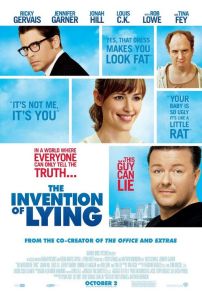 Wow. I just realized exactly how much time has passed since my last update. It truly is amazing how fast time goes by. When I look at my dashboard, I see all these unfinished entries that I began putting together over the course of the last eight months. Perhaps someday in the near future, I might post them all as is. That is, if there is enough interest in seeing such poorly written drafts. Unfinished entries include: Inglourious Basterds, The Men Who Stare at Goats, my Top 10 Most anticipated films of 2010, and I think I might still have a Star Trek post lying around somewhere that never got published. But anyways, let’s get on with the true subject of this post. Before we get started, however, I want to offer my apologies for not writing about something new. The truth is, it has become difficult for me to keep up with new films. Plus, I really hate going by myself. So it’s a catch-22 of sorts.
Wow. I just realized exactly how much time has passed since my last update. It truly is amazing how fast time goes by. When I look at my dashboard, I see all these unfinished entries that I began putting together over the course of the last eight months. Perhaps someday in the near future, I might post them all as is. That is, if there is enough interest in seeing such poorly written drafts. Unfinished entries include: Inglourious Basterds, The Men Who Stare at Goats, my Top 10 Most anticipated films of 2010, and I think I might still have a Star Trek post lying around somewhere that never got published. But anyways, let’s get on with the true subject of this post. Before we get started, however, I want to offer my apologies for not writing about something new. The truth is, it has become difficult for me to keep up with new films. Plus, I really hate going by myself. So it’s a catch-22 of sorts.
Those of you who have taken the time to get to know me will recall that I attend a church called Crossings. It meets in the Square Room on Sunday mornings. Cory Mounce decided to host a film discussion in the conference room last night, and the film he chose was The Invention of Lying. I thought this film had a lot to say if you were able to look past the surface.
Note: There are spoilers below, so do not continue unless you have seen the film or unless spoilers do not matter to you.
The general synposis of the film is that Mark Bellison (Ricky Gervais) is a screenwriter for a company called Lecture Films. They produce documentaries. He is quite unsuccessful at his job, not to mention other aspects of his life. At the beginning of the film, he is meeting up with a woman by the name of Anna McDoogles (Jennifer Garner). The two have a date planned, and oh…did I mention in this fictional world, nobody can tell a lie? Imagine the awkwardness of a first date where you’re just not feeling any chemistry and you have to be brutally honest with the other person. But I digress. Mark meets up with Anna, and after a really awkward scene in her apartment (bear with it, that really is the worst part of this film) they proceed to dinner. Anna admits that she finds Mark unattractive, doubly so since he’s financially unsuccessful. Later, she e-mails him and tells him that while she did have a good time with him, she can’t be with him because they aren’t a genetic match.
To make matters worse, Mark loses his job which leads to him being evicted. As he’s going to withdraw the rest of his money from his bank account, he realizes that he alone has the ability to tell a lie and everyone will believe what he says, no questions asked. Over the course of the film, he gets a second date with Anna that leads to the two of them becoming best friends, unintentionally creates a religion which is a shallow facsimile of Christianity, saves a guy’s life, gets his job back, and becomes wealthy and successful. All by lying.
Problems arise, however, because he falls in love with Anna, and Anna realizes that he makes her happy. Despite this fact, she clings ever so tightly to her preconceived notion that she can only be with someone who is her exact genetic match because she does not want “fat, snub-nosed kids.” Her mother only makes the problem worse by reinforcing the notion. During the course of Mark and Anna’s friendship, she meets his rival Brad Kessler (Rob Lowe). Brad is the perfect match, according to her standards: he is very successful as well as very attractive to her. She views him as her genetic match. Her mother agrees.
The turning point of this film is when Anna and Brad decide to get married. Mark goes into a deep depression and won’t even talk to her. She finally shows up at his home and gives him an invitation to the wedding. He asks her, “Why do you want me there?” and she replies, “Because it would make me happy.” So, Mark tosses the invitation aside and Anna leaves. The wedding is the next day, and he has no intention of going. Fortunately, Mark has friends such as Greg (Louis C.K.) that care about him and make him get up and get himself together. Greg, as he shows Mark his suit and a razor says, “You haven’t lost yet.” and convinces him to go to the wedding. When all is said and done, he manages to make Anna realize that her standards were unimportant next to her own happiness and she marries Mark instead.
If only the real world worked like that, right?
The first question asked last night following the film was, “Does it change your perception of the film knowing that Ricky Gervais is an atheist?” Well, I was unaware of that, but the answer is no, it does not. As I said last night, I think sometimes it takes someone who does not share our beliefs to slap us in the face and make us wake up. If everyone believed the exact same thing, there would be no reason for us to seek answers, no reason for us to discuss important issues, and without challenges to our faith, I think there would be no way for it to grow. Personally, after viewing the film, I think Gervais at least has a decent knowledge of religion. I also think he has a measure of respect for it because despite the tongue-in-cheek jabs, he really wasn’t blasting it as much as he could have. It wasn’t outright disrespectful.
Another point was the subject of moral ambiguity. If we could make things better by lying, is it justified? Mark saved Frank’s (Jonah Hill) life in the film by lying to him and convincing him that he had no reason to commit suicide. Bill Wolf even brought up a few Biblical points where lying had been used to save lives (I wish I could remember them, but I’m drawing a blank). Does it make it right? I’m not sure. I don’t have an answer for that. I’m an honest person. That’s not to say I don’t have my secrets, but if asked outright, I’m an open book. If it came between telling a lie or knowing someone would commit suicide, I think I would tell a lie. I believe a life is more important.
The religion that was created in this film was the result of a lie that Mark told to his mother as she lay on her death bed in order to help her find solace. The doctor and nurses overheard it and believed it, of course, because lying was unheard of. It got passed along to the media, and before he know it, it got blown out of proportion and he was forced to write ten truths down on pizza boxes and deliver them in a scene reminiscent of Moses delivering the Ten Commandments. His main issue was convincing people that “The Man In the Sky” was responsible for the bad as well as the good, something the people had trouble wrapping their heads around. And don’t we all? One thing that stuck out to me later in the film was when Mark was walking down the street and there was a street-preacher who said, “We can do two wrong things and still be rewarded when we die!” (Mark had previously said in his rules that it was a three strikes and you’re out sort of deal). While according to Mark’s rules, that was certainly true, it just goes to show you how we as humans twist and corrupt things around to serve our purposes and mislead people. It quite honestly disgusts me.
Another point along the same subject is when Greg, Frank, and Mark are sitting around the pool and the subject of why Frank hasn’t tried to better his life comes up. He responds by asking what the point is if he’s going to be rewarded in the afterlife? He figures he could just endure a bad life and speed things up by drinking excessively and wait for the better rewards. Don’t we all know people who are like this, though? People who just sit around and expect rewards but they never get out and do anything that involves effort on their part? Then when questioned about his line of thinking, Frank blurts out, “F*** ‘the Man In the Sky!'” Have you ever felt that way? Despite his faith, I imagine Job must have at one point. I can honestly say I felt that way as recently as three weeks ago.
But now I want to get to the last point. Anna is only looking for a perfect genetic match. That’s her standard. Forget true happiness. Over the course of the film, Mark falls in love with her, and she develops feelings for him, but she’s never going to be with him because of his genetics. And then we see her mother, and she’s exactly the same way. It begs the question: is Anna holding onto that belief because she really believes it, or is she holding onto it because it’s what she got from her mother and it’s all she’s ever known? Has she ever taken the time to come to her own conclusions? We can kind of see something happening to her during the course of the film as she begins to realize that Mark makes her happy. There’s an inner struggle going on with her character as Mark tries to show her that you have to look past the things that people can’t change and look at who they are.
At the end of the film, Mark goes to Anna and Brad’s wedding and essentially forces her to choose between her standards and true happiness. Sometimes someone or something comes along that forces us to re-evaluate what we think we want for ourselves. So, Anna finally comes around and goes against what her family thinks and what she thinks she wants and chooses happiness.
In conclusion, sometimes we have to come to the realization that the standards we create for ourselves, when placed side by side with God’s plans, are complete rubbish. We have a saying at Crossings that I think illustrates the point quite nicely: There is a God. His name is Yahweh. He has a plan, and it will not be thwarted.
I’ll close with what my usual closing: don’t take my word for it, make up your own mind.
Shalom.


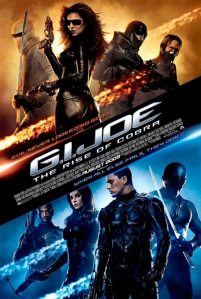 summer, and nobody was looking forward to it more than those of us who grew up on the old G.I. Joe cartoons. When I sat down in the theater, I saw a lot of children in there, and I couldn’t help but think to myself: How is G.I. Joe even relevant to kids today when there’s not even a cartoon to support it? Perhaps it was just parents bringing their children along with them as they came out to enjoy some nostalgia.
summer, and nobody was looking forward to it more than those of us who grew up on the old G.I. Joe cartoons. When I sat down in the theater, I saw a lot of children in there, and I couldn’t help but think to myself: How is G.I. Joe even relevant to kids today when there’s not even a cartoon to support it? Perhaps it was just parents bringing their children along with them as they came out to enjoy some nostalgia.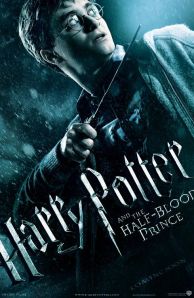
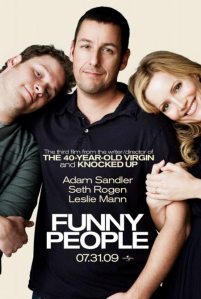 Now…on to Funny People.
Now…on to Funny People.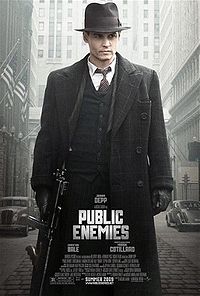 For those of you that know me, you know that I can’t resist a good gangster film. I love films like The Godfather, Scarface (the 1932 version), etc, so naturally, this one caught my interest.
For those of you that know me, you know that I can’t resist a good gangster film. I love films like The Godfather, Scarface (the 1932 version), etc, so naturally, this one caught my interest.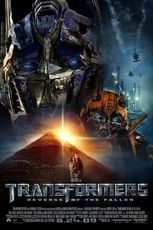 Don’t get me wrong, “21 Guns” is an amazing song, and I listen to it quite often, but I can count at least four times off the top of my head where it was used in this film. But I digress.
Don’t get me wrong, “21 Guns” is an amazing song, and I listen to it quite often, but I can count at least four times off the top of my head where it was used in this film. But I digress.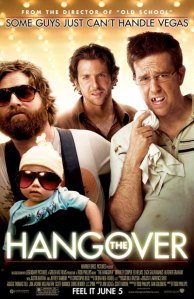
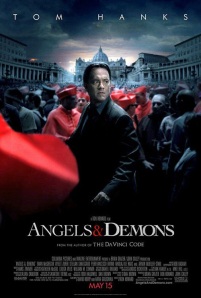 Alright, after waiting a couple of weeks on a friend whom I had promised to watch this film with, I finally got a chance to see it. It still took me another week to finally write this review, so I do apologize for the wait. But as the saying goes…better late than never.
Alright, after waiting a couple of weeks on a friend whom I had promised to watch this film with, I finally got a chance to see it. It still took me another week to finally write this review, so I do apologize for the wait. But as the saying goes…better late than never. I prefer the Matrix interpretation of the man vs. machine concept, but that’s mostly for its philosophical and theological aspects. Terminator, however, is an entirely different model (see what I did there?). Unlike its predecessor, this Terminator film wasn’t a complete waste of time.
I prefer the Matrix interpretation of the man vs. machine concept, but that’s mostly for its philosophical and theological aspects. Terminator, however, is an entirely different model (see what I did there?). Unlike its predecessor, this Terminator film wasn’t a complete waste of time.